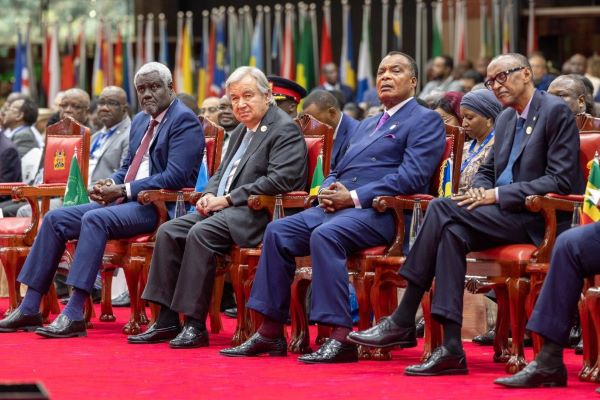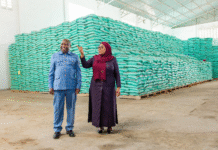By Zablon Oyugi
The African Heads of State and Government have today, in marking the three days Africa Climate Summit in Nairobi, expressed their commitment to redouble their efforts towards boosting agricultural yields in the continent through sustainable agricultural practices.
Through a joint communiqué dubbed The African Leaders Nairobi Declaration on Climate Change and Call to Action, the leaders have recognised the adverse effects of climate change on the entire environment ecosystem disrupting livelihoods of many smallholders depending on farm produce.
“We acknowledge that climate change is the single greatest challenge facing humanity and the single biggest threat to all life on Earth,” read the statement in part.
In emphasising Africa’s potential and ambition to be a vital component of the global solution to climate change, the leaders promised to strengthen actions to halt and reverse biodiversity loss, deforestation, desertification, as well to restore degraded lands to achieve land degradation neutrality.
In this, they urge the operationalization of the Loss and Damage fund as agreed at COP27 and resolve for a measurable Global Goal on Adaptation (GGA) with indicators and targets to access progress against negative impacts of climate change.
They have also committed to integrate climate, biodiversity and ocean agendas and instruments at national plans to support sustainable development and support nature-based ocean solutions for climate, livelihoods and sustainability objectives that support and increase the resilience of local communities, coastal areas and national economies.
Poor funding towards climate change action
Despite contributing the least to climate change but suffering from some of its worst impacts, Africa only receives about 12 per cent of the financing it needs to cope.
While organisers emphasised market-based solutions such as carbon credits in the lead-up to the summit, the final declaration was heavy on demands that major polluters commit more resources in terms of funding to help poorer nations.
In remarks concluding the summit, President of Kenya William Ruto criticised the “unjust configuration of multilateral institutional frameworks that perpetually place African nations on the back foot through costly financing”.
The declaration urged world leaders “to consider collective global action to mobilise the necessary capital for both development and climate action, echoing the statement of the Paris Summit for a New Global Financing Pact that no country should ever have to choose between development aspirations and climate action.”
It said implementing such measures at a global level would ensure large-scale financing for climate-related investments and insulate the issue of tax raises from geopolitical and domestic political pressures.
“We note that multilateral finance reform is necessary but not sufficient to provide the scale of climate financing the world needs to achieve 45 percent emission reduction required to meet the Paris 2030 agreements, without which keeping global warming to 1.5% will be in serious jeopardy.“
Additionally, that the scale of financing required unlocking Africa’s climate positive growth is beyond the borrowing capacity of national balance sheets, or at the risk premium that Africa is currently paying for private capital
They also urged efforts to refine the G20 Common Framework for Debt Treatments while remaining concerned that the efforts lack both adequacy and timeliness.
Climate action plan
Finally, the leaders also committed to accelerate implementation of the African Union Climate Change and Resilient Development Strategy and Action Plan (2022-2032).
This is in addition to strengthening early warning systems and climate information services, as well as taking early action to protect lives, livelihoods and assets and inform long-term decision-making related to climate change risks. We emphasise the importance of embracing indigenous knowledge and citizen science in both adaptation strategies and early warning systems.









